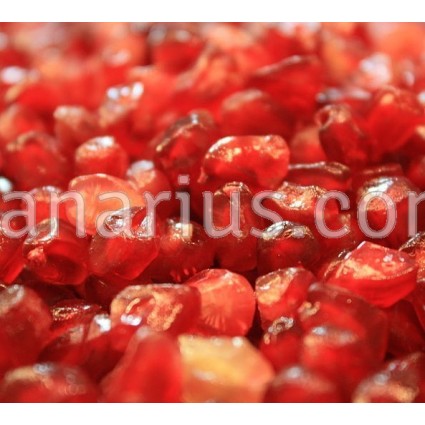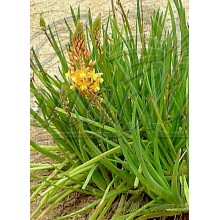 Visualizza ingrandito
Visualizza ingrandito
Punica granatum 'Parfianka'
Parfianka is considered by many the most tasty or flavourful cultiva of this fruit. It belongs to the group of "Russian Pomgranates", which are known for being early-bearers and for their resistance to frost and heat.
Nuovo
Parfianka is considered by many the most tasty or flavourful cultivars. It belongs to the group of "Russian Pomgranates", which are known for being early-bearers and for their resistance to frost and heat. It ripens in early October large rounded fruits with bright red-orange skin of uniform colour. Inside there is little presence of white part and arils are large, with a sweet and acid flavour, an intense bright red colour. They contain small and very soft seeds. Storage time is 30-40 days. As written before, Parfianka is very hardy to frost and should survive to temperatures of -15 C.
Pomegranates in general are vigorous small trees, resistant to moderate frost and heavy droughts. They can be kept as large shrubs of 2-3 m and can even grow and fruit in large pots.
Picture from wikimedia commons:
Own work, CC BY-SA 3.0 <https://creativecommons.org/licenses/by-sa/3.0>, via Wikimedia Commons
https://commons.wikimedia.org/wiki/File:Punica_granatum_seeds.JPG
| Coltivazione | Protetta |
| Origine della pianta | Europa |
| Origine della pianta | Asie |
| Presentazione | Pianta in vaso |
| Dimensione massima | 200cm-400cm |
| Famiglia botanica | Lythraceae |
| Luce | Sole |
| Temperatura minima in inverno | -10 ºC a 0 ºC |
| Stagione della fioritura | Primavera |
| Stagione della fioritura | Estate |
| Tipo pianta | Legnose |
| Colore | Rosa |
| Colore | Rosso |
| Cura | Vaso |
| Cura | Piante d'appartamento |
| Forma | Arbusti |
| Forma | Alberi |




















